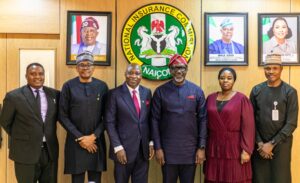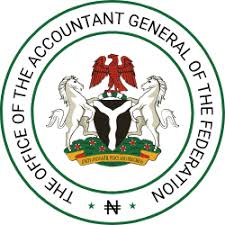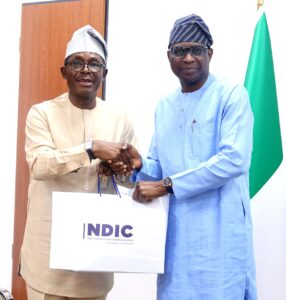Nigeria loses approximately $18 billion annually to illicit financial flows (IFFs) due to profit shifting and aggressive tax avoidance practices by some Multinational Corporations transacting business in Nigeria.
This is according to the Minister of State for finance Doris Uzoka-Anite who was speaking at the National conference of illicit financial flows put together by the Federal Inland Revenue Service (FIRS) in Abuja.
The theme of the two day conference, “Combating Illicit Financial Flows: Strengthening Nigeria’s Domestic Resource Mobilization,” and the minister say speaks directly to one of the most urgent challenges facing Nigeria today- the need to protect and retain the wealth generated within the national borders, a critical issue that continues to undermine development efforts and weaken economic sovereignty.
According to her, “Huge sums of money are transferred out of the country which strips the country of resources that could be used to finance much-needed public services. This means fewer hospitals and schools, fewer police officers on the street, fewer roads and bridges. It also means fewer jobs”.
The minister said although the recent assent to the four landmark tax reform bills by the President is unprecedented, the tax reforms must be replicated regarding international tax law framework.
“We must not lose sight of this as there are so many foreign companies transacting in Nigeria without paying adequate taxes. A lot of the international tax treaties that Nigeria has entered do not presently reflect our renewed resolve for tax equity. This needs to change. Hence there is a need to bring them in conformity with our current economic realities, the new tax reforms regime, and towards tax equity between the global North and the global South”.
uzoka-Anite said the Ministry of Finance has committed to a multi-agency, multi-stakeholder approach in tackling illicit financial flows with a strategy anchored on three pillars: Policy Alignment and Legislative Reform;Transparency and Disclosure; and Digitalization and Intelligence.
“Illicit financial flows are not inevitable. They thrive where systems are weak and coordination is absent. But they can be stopped when political will meets institutional resolve”.
The concerns were reechoed by Irene Ovonji-Odida, Member of Mbeki High Level Panel on Illicit Financial Flows from Africa who delivered the keynote address.
Highlighting the headwinds facing Africa and indeed the global south, she posits that the system is already skewed in favour of the global north across sectors.
“Despite our rich endowment in natural, human and other resources, developing countries face significant finance gaps which for Africa are estimated at $194 billion per year. Debt service for African countries in 2023 was projected at US$68.9 billion, with 21 African countries at risk of debt distress owing a total debt of US$644.9 billion to external creditors, with African countries’ debt amounting to 24% of their combined GDP as of 2021”.
Africa took early leadership on the issue of IFFs through the AU/ECA High Level Panel on Illicit Financial Flows from Africa, also known as the Mbeki Panel, established in 2012. Chaired by former South African President Thabo Mbeki, the panel’s 2015 report and recommendations were adopted by the AU Summit in a Special Declaration on IFFs from Africa. The report estimated annual IFFs from Africa at USD50 billion, with cumulative outflows reaching $1 trillion over fifty years. Highest tax losses were from West and North Africa, including Nigeria.Commercial tax avoidance practices caused 65% of IFFs: with up to $407 billion lost from trade mispricing from 2001-2010. Organized crime drove 30% of IFFs while 5% of IFFs came from official government bribery.
Ovonji-Odida said power dynamics and confluence of vested interests between global corporations, states, professional enablers, and organized criminals make IFFs a complex, highly technical, and political phenomenon.
While acknowledging efforts made so far to combat IFFs on the continent and particularly Nigeria, she said the recent international tax reform efforts aim to correct historical imbalances rooted in colonial and post-colonial structures.
“What is at stake is for Africa and the Global South in general, is fair allocation of taxing rights to increase DRM for investment in public goods in an unfair international tax system that entrenches asymmetries between advanced economies MNCs and the ultra wealthy on the one hand, and developing economies, domestic enterprises and ordinary citizens on the other. The abuse or use of loopholes and weak global frameworks in the global tax system by rich governments, MNCs and HNWIs is facilitated by globalization and digitalization of the economy.
She said the task ahead of Africa include: The need to strengthen capacity and coordination, establish global coherence of what has been agreed by Africa and develop the global mechanism which will ensure complete adherence to the implementation of these agreements.
Earlier in his opening remarks, Executive Chairman of the FIRS Zacch Adedeji said the theme captures one of the most critical challenges facing the economy which is the urgent need to safeguard our national resources and build a resilient, equitable future.
He said Illicit Financial Flows through tax evasion, profit shifting, money laundering, and trade misinvoicing do not merely represent financial wrongdoing but constitute a structural drain on the economy, depriving the nation of the resources needed for inclusive development.
“Each unaccounted dollar undermines governance, erodes trust, and translates into lost infrastructure, inadequate public services, and deepening inequality.
“The scale of these flows, especially through aggressive tax avoidance by multinationals exploiting opaque global arrangements, continues to threaten Nigeria’s fiscal stability. Like many other resource-constrained nations, we lose billions annually through these illicit conduits—making this conference not just a policy dialogue, but a national imperative.
Under President Bola Ahmed Tinubu’s Renewed Hope Agenda, we have entered a new era of fiscal reform. The recent assent to four tax reform bills on June 26, 2025, signals this administration’s strong commitment to overhauling our tax system, modernising the legal framework, and institutionalising transparency in revenue collection. But legal reform is only a starting point. To deliver on its promise, we must reinforce enforcement, optimise digital compliance, and build public trust through fairness, predictability, and strategic communication.”
Adedeji said the Federal Inland Revenue Service is responding with a deliberate, multidimensional strategy that include: championing voluntary compliance by promoting taxpayer education and simplifying systems; harnessing technology and intelligence; establishment of the Proceeds of Crime Management and Illicit Financial Flows Coordination Directorate as the designated coordinating agency under the Proceeds of Crime Act (2022); and reviewing Nigeria’s Double Taxation Agreements (DTAs), some of which—due to outdated clauses—may inadvertently enable profit shifting.
While acknowledging that criminal networks adapt quickly, Adedeji said the response must be agile, intelligence-led, and globally coordinated.
“This conference must go beyond dialogue. It must yield concrete action—real-time data exchange across institutions, robust enforcement mechanisms, and strengthened accountability frameworks. Only through unified effort can we plug the gaps that enable IFFs and reclaim the fiscal space necessary for national development”.
The Chairman reaffirm the unwavering commitment of the FIRS to continue to lead with purpose—serving as a catalyst for reform, a convening force for collaboration, and a vigilant steward of Nigeria’s fiscal sovereignty.
Good production costs money and you can support what we do. Please find our details below👇🏾👇🏾👇🏾 Account name: MARKET ONLINE MEDIA Bank: UBA Acc No: 1026401930.






























